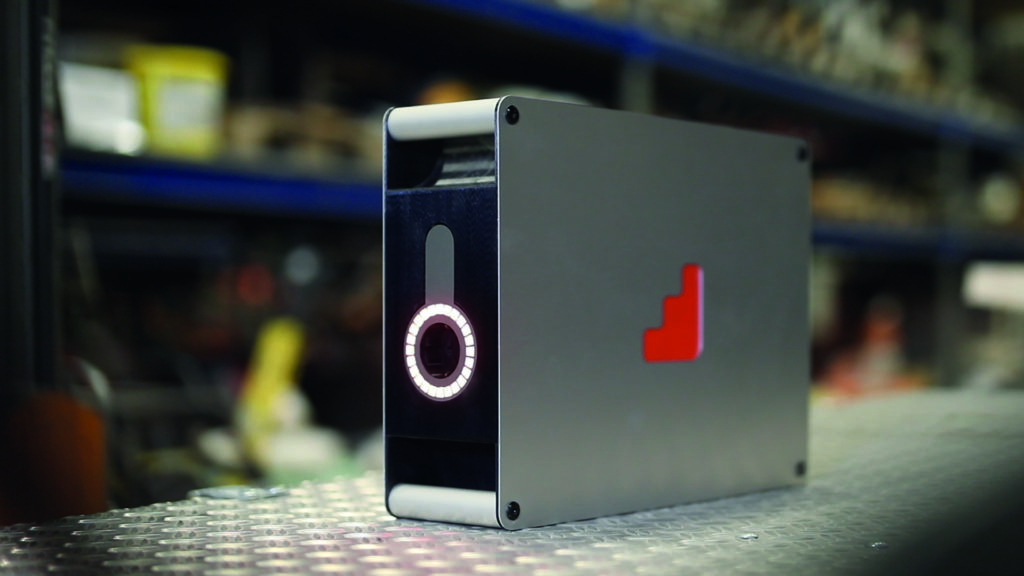The global Energiewende, or energy transition, is the allied goal of many countries around the world to reduce the energy sector emissions to zero carbon-based emissions by 2050. While many pieces of the puzzle have been assembled, one major outstanding tile is the cost of energy storage, or as we commonly know them, batteries. Startup Instagrid from Stuttgart, Germany, has designed a unique product that provides a solution for this specific challenge. And it looks pretty damn good.
The product is essentially a portable battery pack. Where one might have traditionally used a gas-fuelled generator, Elektra by Instagrid serves the same purpose quietly, consistently and with clean energy. It weighs only 10-12 kg and can power appliances up to 230 V or 3600 W. It holds 1-2 kWh, is waterproof and connects to the internet of things. On top of all that, it’s silent and does not require active cooling.
Why Can’t Battery Technology Keep Up?

While renewable energy technologies have soared ahead in development, advancement in battery technology is not advancing as rapidly, but not for lack of trying. Lab research on developing new methods of conducting energy takes years of iterations to perfect. The overarching goal with battery technology advancement is to store more energy in less space for less money. This is also known as increasing energy density. Current market battery technology is too heavy and takes too long to charge to completely replace previous activities, such as driving more than a few hours.
Some companies such as Solid Power from Colorado are leaning into solid-state technology to reduce risk and increase storage capacity by turning the liquid electrolyte into a solid polymer. Co-founder of Instagrid, Dr Sebastian Berning posits that the major problem lies in something different: the electrical engineering around the battery cells.
“If you look at the price-development of lithium-ion cells over the last ten years, there’s basically a ten-fold improvement. They’ve gotten ten-fold cheaper, you know. So you can buy lithium-ion cells at $100 per kWh today, but the system price is still above $500 per kWh so that one hasn’t changed,” said Berning.
If you’ve ever paid an electricity bill, you’re probably familiar with the kilowatt-hour (kWh), but for those lucky ones who have dodged that bullet, the kilowatt-hour is the main standard for electricity measurement. It refers to the amount of energy supplied when 1000 watts run for one hour. To provide some perspective on how much that is, a 40 W lightbulb that is on for 25 hours would use 1 kWh of electricity in that time. Berning believes that the battery game could be simplified by improving engineering around the lithium-ion cells.
Charging Ahead, Instagrid Finishes Series A Financing

Instagrid has basically developed a sleek solution for replacing diesel or gasoline fuelled generators. Its technology aims to help professionals who need rapid, reliable access to energy supplies where there may not be wall sockets available. Its proposed audience includes first responders, roadside assistance workers, construction workers, cleaners, events and movie producers.
Its latest press release refers to the key technology as a modular “Software-Defined Battery,” which reduces the cost, size and weight of the power system. It claims to have achieved a 90% reduction in space and weight for power conversion over traditional systems. Even more astoundingly, the new system purports 40% lower operating costs compared with traditional generators and combustion engines, and of course, zero local emissions.
When the StartupTV team spoke with Dr Sebastian Berning in Abu Dhabi in 2019, the company had just finished its seed round. “We bootstrapped the company for the first year, so we basically invested all of our personal savings into the company and since December last year we did our seed round so we got a couple of German and Austrian investors on board currently.” In February of 2020, the company closed its Series A round to the tune of 8.5 million EUR, led by SET Ventures and backed by High-Tech Gründerfonds, Segnalita Ventures and a German family office.
Though the current global crisis may alter these plans, the company announced at the time of the funding that the next steps would be to expand its team and scale up production.
Sources: CNBC, Instagrid, Direct Energy Business


